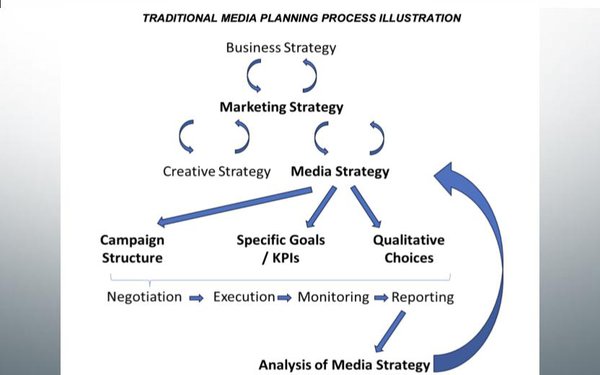
That seems to be what industry economist and
former big agency insider Brian Wieser is suggesting in a new report being released this morning.
The report, "The Future of Planning Is The Platform," was commissioned by one of them --
Google -- but the long-time Wall Street and agency holding company (Interpublic's Magna, WPP's GroupM) forecaster and economist, says it draws on his years of experience both inside and out of ad
business, and was done in consultation with nearly a dozen industry experts, including Google Senior Director of Global Media Measurement and Optimization Elissa Lee.
The report, which is
being published this morning in Wieser's Madison & Wall Substack newsletter, also follows the release of a multitude of new, powerful
and free media planning and buying tools developed by the major platforms to help both small and big advertisers and agencies get more bang for the bucks they spend on the platforms.
advertisement
advertisement
Just last
week, Google announced it was taking its Meridian marketing mix model out of
beta and offering to any advertiser and agency who wants to use it.
Google unveiled Meridien during its May 2024 "Marketing Live" summit along with a variety of other new media planning software
tools (see highlights via YouTube below).
Not surprisingly, many of the new media planning tools being developed by Google -- as well as other big digital platforms including Amazon, Meta,
Microsoft, etc. -- are leveraging increasingly powerful versions of AI, enabling advertisers and agencies of all sizes to do much more of the kind of manual planning that might have required teams or
individuals spending many work hours working with spreadsheets and other clunky, manual tools.
A 2024 study by media-buying data and software
company Guideline, in fact, found the vast majority of media planners -- both inside agencies and clients directly -- still utilize spreadsheets to manage their media planning.
Wieser's
report also comes as the big agency holding companies are doubling down on their own planning tech stacks, infused with AI, and leveraging proprietary data that may not be as easily scraped by the
digital platforms -- ie. "walled gardens" -- that they often find themselves at the mercy of using without the kind of transparency they desire.
Just last week, Stagwell's Assembly unit
unveiled a new AI-powered version of its internal media planning operating system dubbed "STAGE AI," which it touts as already having generated a 30%
lift in "campaign relevance for targeted audiences" in its beta testing, and quantum leaps in data processing time.
“STAGE AI is not just an upgrade; it’s a transformation,”
Assembly Global CEO Rick Acampora said when it was announced, adding, "This is the most real, connected, and future-ready technology in the industry, and now it’s even better. With AI seamlessly
integrated into STAGE, we’ve created a smarter, faster, and more automated platform that allows our teams to deliver exceptional value to our clients, not just today, but for the
future.”
In fact, most if not all of the big agency holding companies have been investing mightily in AI-powered operating systems capable of leveraging unique, proprietary data that
gives them a competitive edge vis a vis the big tech platforms.
None represent this better than MediaPost's "Holding Company of the Year" Omnicom, which has already merged its homegrown OMNI AI-powered
OS with the undisputed commerce data optics of Flywheel Digital, and is now poised to merge those with Interpublic's own deep tech and data resources, including Acxiom.
While big digital
platforms have an almost omniscient view of data about how their own users behave -- often both in- and out-of-network -- Omnicom execs have boasted how their Flywheel unit has visibility into "petabytes of data" across "the
top 80 marketplaces in the world."
Amid all their own internal development, as well as working directly with digital platforms to help develop APIs for improving media planning and buying
across their systems, three of the biggest holding companies -- Interpublic,
Omnicom and WPP -- took equity stakes in what arguably is the biggest planning and buying technology and software developer to date, Mediaocean.
Meanwhile, Wieser's new report does not
paint a rosy picture for conventional media planners, forecasting that much if not all of what they previously handled manually is being replaced by better, faster, and AI-infused automation that will
require people to focus on more sophisticated forms of consumer planning, such as "strategic planning," "account planning" and communications planning, which combine more of a human touch to
understand how other humans connect with media, messages and products and services.
"There's more and more focus on something passing for a [key performance indicator] and then organizing
everything around that," Wieser told me late last week while giving me an early look at his new report.
"What I'm trying to says is that if you're planning there's no more line item for video,
audio, print, digital. The line item -- meaning the media plan -- is the platform now.